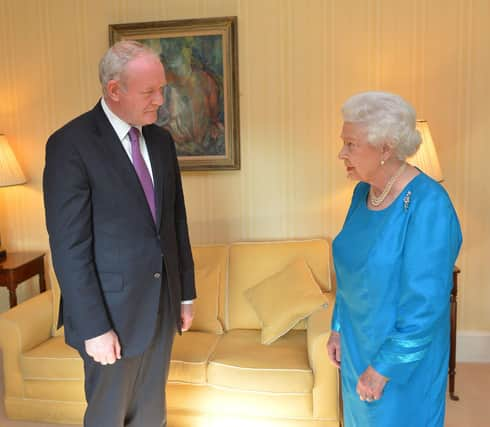Ben Lowry: For all the anger about an amnesty, the 1998 Belfast Agreement deal had an implied but obvious one


I think this is the latest staging post in a saga that I once said was one of the biggest scandals in Britain since World War Two. I still believe that, but for reasons that I will explain below – which are not the same reasons that so many of the critics of this attack this UK government’s new act, often being furious at the very concept of an amnesty.
Such anger is perfectly understandable but in many cases it is illogical.
Advertisement
Hide AdAdvertisement
Hide AdIf you are a unionist who always opposed the Belfast Agreement on the grounds of the release of terrorist prisoners, for example, then an amnesty is something you might have always rejected.
If you are an Irish republican who believes that UK state forces have never faced the justice that they should, then you too might be consistent in your opposition.
But a lot of cheerleaders for the 1998 deal (which, as it happens, I also supported) have become determined – at times hysterical – critics of an amnesty without ever honestly addressing what happened at that time.
There was an obvious implied amnesty then. After all, what prospects were there of Martin McGuinness becoming deputy first minister and then being arrested and tried for the many terrorist crimes for which he was obviously culpable?
Advertisement
Hide AdAdvertisement
Hide AdIn other words, swathes of people in Northern Ireland who abhorred IRA terrorism realised, perhaps grudgingly, that there was unlikely to be a criminal justice pursuit of IRA leaders once power-sharing that included Sinn Fein was agreed. The corollary of that is that many people of the republican tradition, who despised the British security forces, similarly realised – maybe grudgingly – that there would not be a pursuit of the UK state.
But the latter observation is not as accurate as the former. Why? Because of a deep-seated sense that the security forces never faced justice.
And at that point we run into what divorce lawyers would call irreconcilable differences.
Growing numbers of young nationalists across Ireland believe that the UK was a murderous state during the Troubles, and that the IRA was not so bad (hence the affectionate ‘Ooh ah up the rah’ chant that is being sung all over the island).
Advertisement
Hide AdAdvertisement
Hide AdI have been predicting this change in sentiment for 22 years because, since the 2001 Weston Park talks, I have seen how the concept of collusion has been pushed. In 2016 I wrote a piece entitled ‘the growing myth of loyalist collusion’. Now I refer to the ‘collusion lie'.
This is not to say there was never any collusion between state and loyalist. In more than a few instances there obviously was. My point is that it quite obviously was not systemic, or else many many more republican paramilitaries would have been killed. In fact, it is remarkable how bad loyalist intelligence was and how rarely they killed IRA men and women, more often murdering Catholic civilians.
We will never all agree on these points. But where I think much of unionism, and indeed the UK government, went wrong was to think that legacy could be agreed with the IRA. It couldn’t.
There is not enough space here to rehearse the problems with the 2014 Stormont House deal on legacy. Suffice to say that among that broad spectrum of people who think the security forces in the Troubles did more good than harm there was growing unease that Stormont House would make the current investigative imbalance against the security forces even worse (click here for a 2020 article in which I explain why I think prosecution stats for legacy cases in recent years show a stark imbalance).
Advertisement
Hide AdAdvertisement
Hide AdI find it hard to express how unpardonable it is that the IRA have long enjoyed a de facto, yet also obvious, amnesty while lowly members of the security forces have been brought before the courts for killings that lacked pre-meditation.
That is the real scandal. As it happens I have never thought a determined criminal pursuit of terrorists feasible or even desirable five decades later, although I know how painful such a philosophical approach to the past is to many of those, who unlike me, were victims.
The UK thought it could agree with the IRA on the past. All that did was lead to grotesqueries such as Sinn Fein, of all people, being so sure that Stormont House was good for them that they demanded it as a price to restore Stormont in 2020 – and got an NI secretary and indeed unionists to acquiesce in that. A pledge that, happily, was later scuttled.
• Ben Lowry (@BenLowry2) is News Letter editor